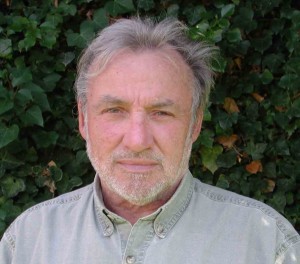
Richard Porter worked for the RSPB for many years (1968-1999) and then for BirdLife International, particularly in the Middle East.
He first went to Turkey in 1966, surveying wetlands, and that autumn (with others) counted the raptors migrating through the Bosphorus – the first comprehensive count of raptor migration at a site in the Old World.
That Bosphorus experience led to the book Flight Identification of European Raptors (Poyser, 1974) with Ian Willis, Steen Christensen and Bent Pors Nielsen. His Birds of the Middle East (Helm, 2010 with Simon Aspinall) has recently been published in an Arabic edition.
Richard is one of the birders interviewed in Behind More Binoculars by Keith Betton and myself which will be available later this autumn as a perfect Christmas present for the one you love.
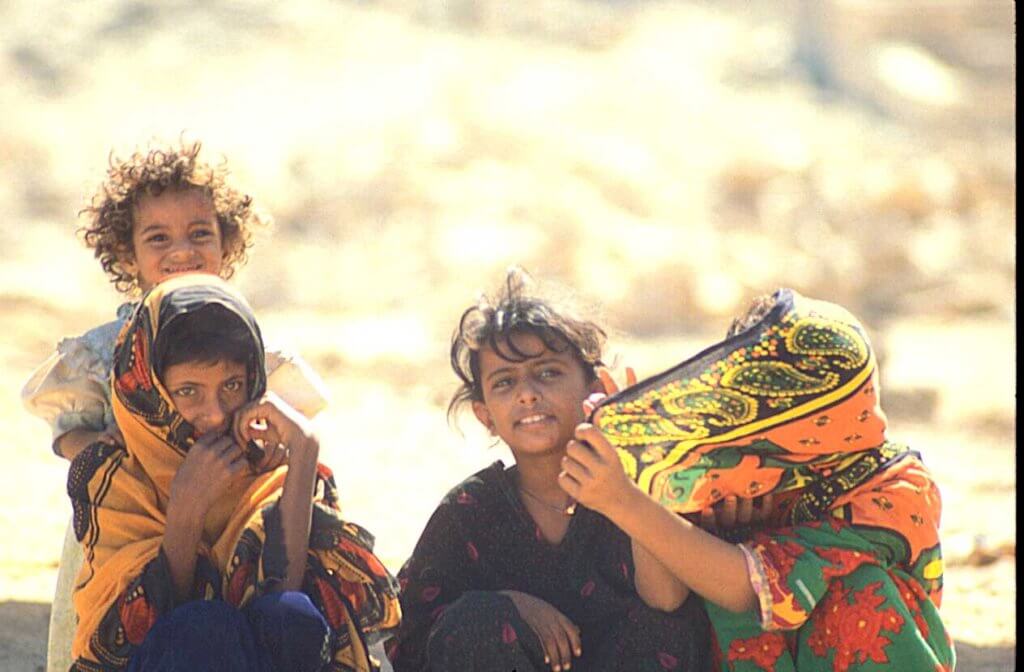
OSME Summer Days – a reflection
Walking back along the edge of the North Sea after wardening the Little Tern colony on Blakeney Point near my home in England, my mind reflected on the recent summer meeting of the Ornithological Society of the Middle East and Central Asia (OSME).
Such annual gatherings have been held in one form or another since 1968. In the early years they were held in the Board Room at Bowmaker House, in London, and hosted by that doyen of Middle East ornithology, PAD Hollom. I can remember on one occasion meeting the elusive S Vere Benson (of Observer’s Book fame) and exploring her thoughts on conservation in Lebanon.
I digress. This year, as has been the case for several, the summer meeting was held in the delightfully converted old Nunnery at Thetford, the home of the British Trust for Ornithology. As usual fans of birds of the Middle East and Central Asia from several countries gathered for a day of talks and discussions, and there was a goodly throng too. Perhaps they knew that this was to be one of the best – maybe the best?
The sun shone and a warm English summer day greeted us.
Inside The Nunnery we were transported to the delights of Armenia and Azerbaijan and their great conservation and research projects, especially involving children; Oman and the fascinating research into godwit migration; Arabia and the universal problem of illegal bird killing and a whiz-round the region through BirdLife’s Important Bird Area programme – the global conservation initiative that unites us all. OSME’s Conservation Fund had made a significant contribution to many of these projects, indeed this year grants totalling over £14,000 were given.
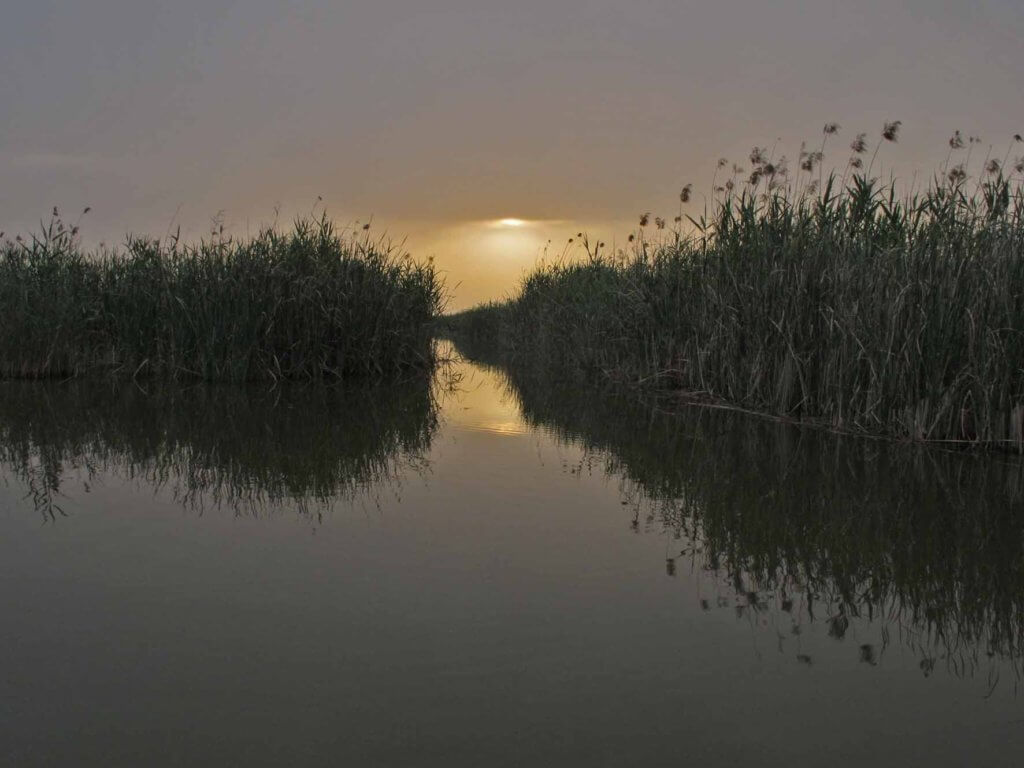
My involvement in Middle East birding and conservation started in the year England won the football world cup, so I’ve seen a few changes and been saddened by many things that have happened in such a wonderful region.
With such a celebratory day of all things great, my mind wandered back to a recent email from a Yemeni friend who I have been helping with a study of a highland IBA that hosts nine endemic species.
I quote, verbatim:
We are so sorry for dis contacting you due to the crazy war which killed everything in Yemen including human, birds,butterflied and flowers.
Besides, our Yemen never deserves that.
we wish, they could stop this useless war in order to live in peace.
AbdulRahman, June
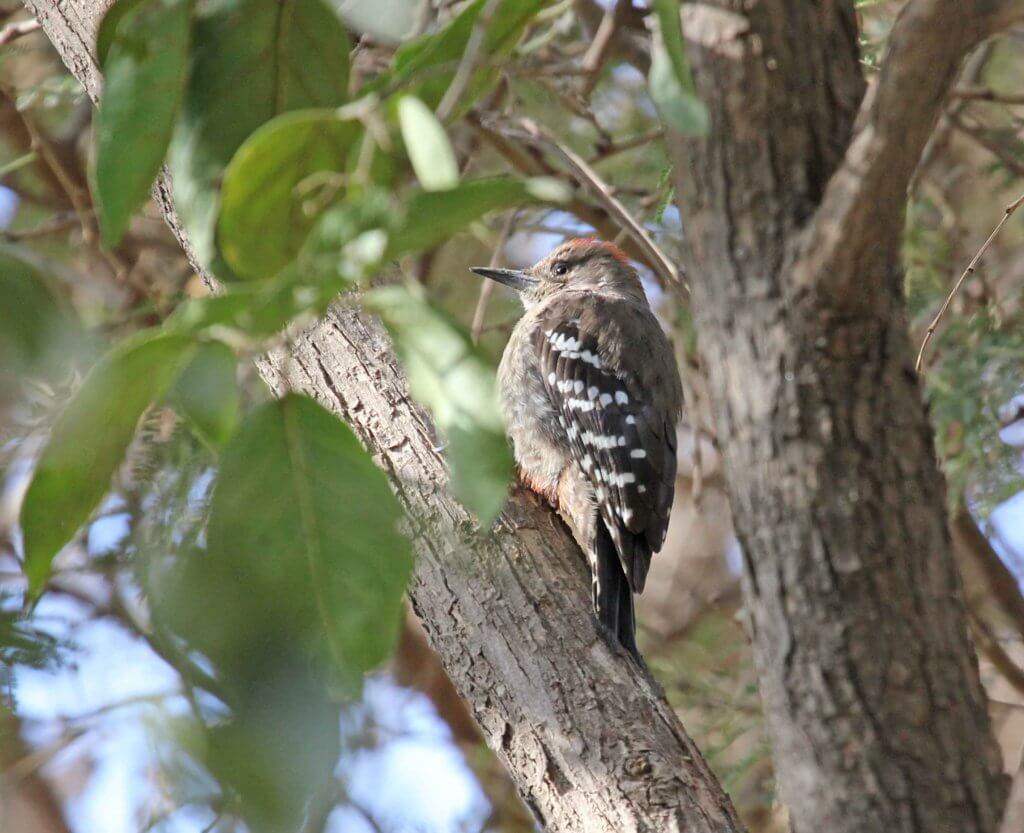
Sitting in the comfort of such a historic building, listening to exciting conservation stories it is easy to forget that there are many troubled parts in OSME’s region.
But even in these difficult times for our Middle East colleagues there are still active conservation programmes in Yemen, Socotra, Syria and Iraq and it was wonderful to have two of the region’s stars joining us.
Abdulrahman Al Sirhan flew over from Kuwait. He selflessly translated Birds of the Middle East into Arabic – a mammoth task – and refused any payment. A highlight for me was presenting him with the book’s cover painting of Blue-cheeked Bee-eaters. Then there was Nadheer Fazaa from Iraq, who explored with us the conservation issues of the Mesopotamian Marshes. I am sure both will play a key part in OSME’s future.
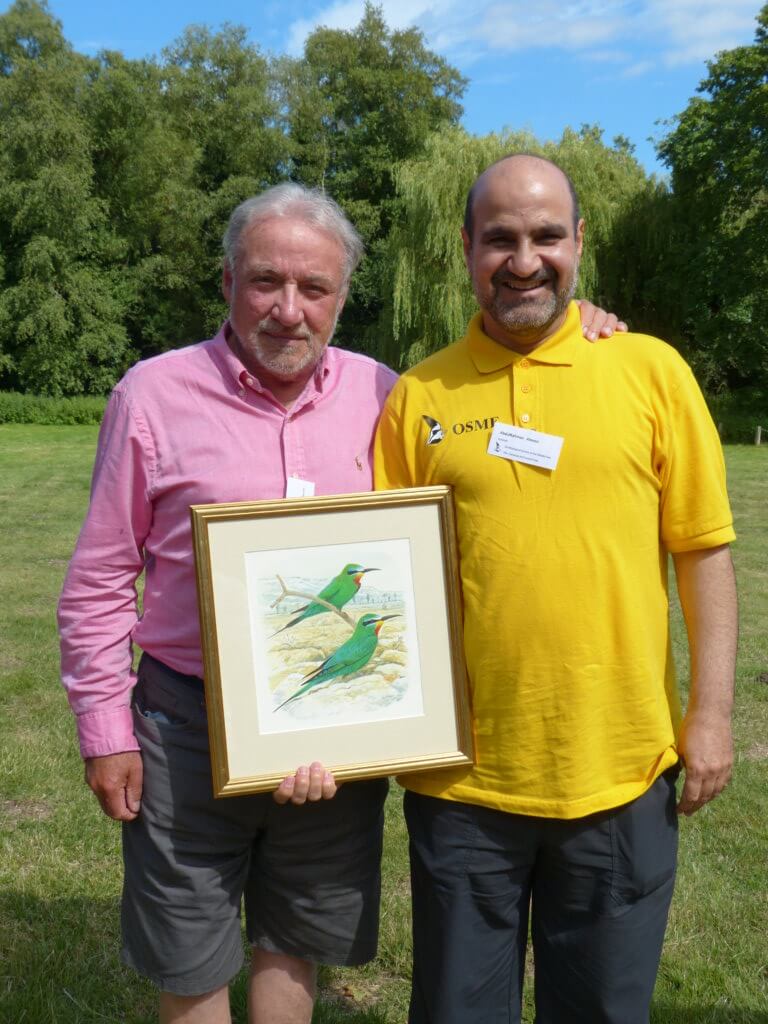
Friendship is always a byword of these gatherings and even though we were here to celebrate birds in the Middle East and Central Asia it was fascinating how often Britain’s foreign friends brought Brexit into conversation…with a sadness for the consequences for wildlife conservation.
Next year is OSME’s 50th birthday, so we are anticipating a summer meeting to beat all. Because of its birthplace I am sure some Turkish delights will be on the menu – a hint to where it all started – at a wetland conference in Ankara.
For more information on OSME, check out its website.
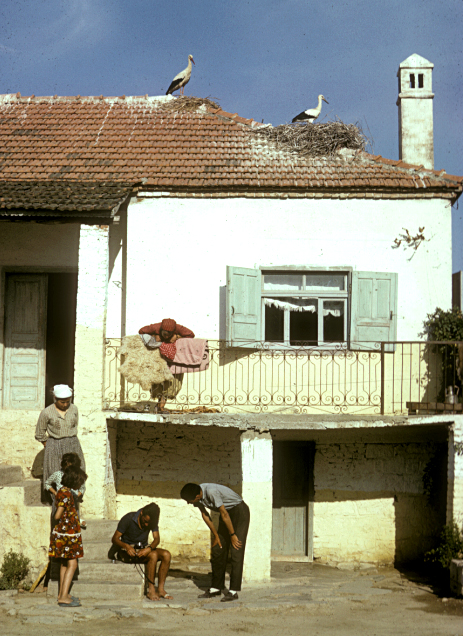
[registration_form]
Richard, thanks.
Your pictures are great bar the last one:
Spellbinding.
Your far away friends and this story?
Sublime.
Hello Murray. This photo was taken in June 1966, when, with three friends, I went to Turkey for 8 months to first survey the western Turkish lakes and then spend the autumn counting migrating storks and raptors over the Bosphorus.
We travelled to Istanbul on the Orient Express and then hitch-hiked or walked and managed to survey, on foot, some 10 wetlands from April to July, camping mostly. At other times we would be taken in (Turkish hospitality is legendary) and the photo shows me with a family with whom we stayed for a night as we hitched south to Bafa Golu, where we camped for five days and had three pairs of nesting White-tailed Eagles.
Richard – thanks. I think it’s the best of those photos myself! Opinions differ!
Thanks Mark. I should have said the photo was taken by either Ian Willis or the late Mike Helps. I think it was Ian. Both had a wonderful eye for composition.
Thanks for the lovely back story to that picture.
‘Turkish hospitality is legendary’.
The other year I danced with a young Turkish man on the deck of a rolling boat sailing across the blazing Aegean. He was a complete stranger but he insisted that we held hands and jigged to the piped music. He was very pleased that I eventually accepted.
Three things to note about this. One, he seemed to very impressed with my stumbling attempt to say ‘thank you’ in Turkish when he offered me and my wife sweets. Two, there was no alcohol involved. Three, I’m intellectually and metabolically incapable of dancing. And yet he encouraged me to move with a modicum of rhythm in defiance of all probability.
Not quite the same as being welcomed into a stranger’s house in far off land or dancing to the sight of White-tailed Eagles. But it’ll do.
Thanks for all your conservation work.
I am not a stranger to some parts of the Middle East and it is very sad to see so many countries rapped up in war. One feature that is remarkable is the work joining Israel, Jordan and Palestine via conservation in Barn Owls. The problem started in poison in the fields effecting the mass migration of birds of prey through these countries. Poison was being used to kill rodents feeding on crops. The answer was mass nesting boxes helping the population of Barn owls hunting at night and Kestrels in the day.
Poison was eliminated and the migration passed by without a problem. This was years ago but still we persist with this poison in the UK today with no trials to eliminate it from the countryside even with new laws of use in 2017 which will not stop the problem of ‘secondary poison’ !! My Barn Owl book will [hopefully] be ready for the Bird Fair and this story is told in it along with this remarkable owl in the UK and all its problems!
Dear Richard,
Delighted to hear your mention of Vere Benson. At the age or 81 she came on a private trip I organised to Turkey in the 1970’s. Even at that age she was like a mountain goat and left us standing when we climbed some of the hills.Although she wrote the book on the birds of Lebanon she had never been to Turkey.I think it was her last birding trip,but she certainly enjoyed it,and if I remember correctly(my files are in storage during a reorganisation of the house) the Bald Ibises at Biricek were a lifer for her. Of course you were responsible for us going there in the first place!
Hello Tom. So glad you met her too and I’d love to hear more about her – perhaps when we meet at the Birdfair? I often quote her Birds of Lebanon as it was, I think, the first bird book for an Arab country that was published in Arabic (and English too). If I have that wrong I’m sure someone will correct me. Good wishes.
Tom – thank you.
I too have fond memories of Turkish hospitality. In the early nineties I stayed the night with an aged couple in a hill village. They were very proud of their green ” melamine” tea cups, exactly the same as my parents had in the sixties.
I have less fond memories of being bitten on the leg ( not too severely), by an Anatolian Shepherd dog,
and having a course of rabies injections on my return.
I had hoped to find the fabled Eregli marshes, long gone by that time I think, though they probably existed at the time of Richards early visits.
Anatolian Shepard Dogs! Don’t remind me. As I did extensive travelling in Turkey for long spells in the 60s and 70s, I was given advice on dogs: if being chased, lay down flat as you were then no longer a threat. It really does work, but it doesn’t do your nerves any good. Yes, those fabled marshes of Eregli. I also saw and have photos of Amik Golu (Lake Antioch) before it was drained. That is where Darters used to breed in Turkey. Now sadly their only Middle East breeding place is in the Iraq Marshes, soon, hopefully to become a World Heritage Site. Inshallah!
I bet those melamine cups are worth a fortune now……
Trapit – nice comment, thank you.
Dear Richard, wonderful photo. Stay well.
Kerem – many thanks!
Thanks Kerem – and the World salutes all the great work you are doing for conservation in Turkey.
Dear Richard,
Very nice photo from 1966!
I have enjoyed the summer meeting and the excellent presentations, and keen to attend the next one. OSME and you did great job for ME, and I am happy to be part of the group. I liked the photo of the Central Marsh, the area is the 1st national park in Iraq and world heritage site. It has more than 125 bird species. Despite the efforts of the Iraqi government and the national NGOs that spent after 2003 to protect the area more work is urgently needed to educate people about how they can use the site in a sustainable way.
Thanks
Nadheer – many thanks!
Thank you Nadheer – and thanks too for all the great conservation work you are doing in Iraq. As you know at the OSME meeting Paul Donald of BirdLife International spoke about the importance of IBAs and KBAs in the region. He showed the cover of the eagerly awaited Key Biodiversity Areas in Iraq, a monumental work undertaken by Nature Iraq, based on many years of surveys by brave young biologists. I have just heard it is to be published in August and hopefully copies will be available at the BirdFair. If they are I’m sure they will be on the OSME, BirdLife, RSPB and British Birds stands as they all helped sponsor it.
The first bird talk i attended was given by Richard at the Zoological Meeting Rooms in Regents Park in the early 70’s (poss ’72, i’m 60 now). It concerned the importance of wetlands for migrant birds in the Middle East – his description of the birdlife and Marsh Arabs at Basra, Iraq had me hooked both on the region and the magic of migration. 4 years later and as an itinerant birder at a safari Lodge in Kena’s Tsavo West i held a freshly rung Basra Reed Warbler at this recently discovered Wintering site! In ’81 and ’83 i too was wardening Terns at Blakeney Point through contacts with the RSPB. I point Richards talk out as the inspiration to others – thanks for the last 45 yrs mate!
Laurie – many thanks!
Thank you Laurie. In 2013 at the invitation of Nature Iraq (the major conservation NGO in Iraq) I went to the Iraq Marshes for the celebration of their re-flooding following the fall of the Saddam regime. It was a wonderful occasion culminating in two boat races – for men and women – to the cheers of a large crowd that lined the Euphrates River.
The last photo above reveals a young and very sun-tanned man in shorts sitting at the foot of the steps – Richard himself. Very soon after he returned to Britain, and still a dark mahogany colour, Richard gave an inspiring talk about his pioneering work in Turkey to a BTO conference at Swanwick. The late James Ferguson-Lees was in the audience, and afterwards told Richard that the person sitting next to him commented ‘Doesn’t he speak good English for a Turk!’
Hello Richard, time ago since I attended the 2003 summer meeting in London and gave a talk on finding the first breeding site colony of Jouanin’s Petrel on Socotra. It was very interested to attend the meeting and hear from others about bird life and conservation efforts, I do hope to come again when the situation cleared up in Yemen. Hopefully very soon. Seize this opportunity to thank you very much and wish you and everybody all best.
Taleb Nadim (Ph.D
It really is good to hear from you Nadim and I remember your talk very well. We had some wonderful times together on Socotra and I’m sure we will again. Congratulations on your PhD too. Let us hope for happy times for the people of Yemen.
Hi Richard – many, many congratulations indeed for your book, its translation and all the background commitment over the years. (The other birding visitors to Camlica you refer to in 1967 and 1968 included myself, Tony Bomford, Alan Kitson, Peter Messent as well as Mike and Ian: we learned alot) Best … Bob
Good to hear from you after all these years. What I think is great since those Bosporus raptor counting days in the 60s is that there are now some really valuable long-term soaring bird migration surveys going on in several countries in the OSME region, most notably in Israel and at Batumi in Georgia. Very best for whatever you are doing these days.
Richard, Thanks very much for the comprehensive blog article enlisted a long journey of conservation in the Middle East in general and in Yemen (incl. Socotra) in particular. Since, I had the honor in accompanying you in most of the work done in Yemen mainland and Socotra since OSME expedition in 1993 and following work to date had laid the bases of conservation in Yemen. Hope that Yemen turmoil will resolve soon and conservation work continue. All your effort is very much appreciated and will be remembered by wildlife lover in Yemen. Wishing you all the best.
Omar – many thanks for your comment.
Hello Omar and thank you for your kind words. Your friendship has meant a lot to me as well as the great work you continue to do in Yemen for conservation in these difficult times. I am really pleased to hear that the Global Environment Facility – UNEP environmental programme is still going ahead on Socotra and I hope it won’t be too long before we can visit that exciting island again. My good wishes to you and your family.